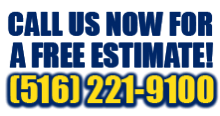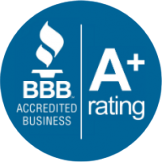Hicksville Roofing: Article About What's In A Commercial Roofing Inspection?
A camera survey is a detailed series of photos taken by inspectors in the process of documenting the various material aspects of a roof. These images serve as valuable tools for the subsequent analysis of energy loss and repair efficacy, and they're also useful for filing insurance claims.
Hicksville roofing contractor answers a question: Why is infrared testing necessary?Infrared testing allows roofing pros to discover the presence of moisture hidden inside building components. With this data, they can backtrack to find the source of leaks and perform more effective repairs that lower your maintenance costs. Thermal imaging also makes it easier to get an idea of which parts of your roofing surfaces are allowing heat transfer so that you can improve your building's energy efficiency with targeted renovations.

If you own or manage commercial real estate, you probably already have it inspected on a routine basis, but what about specific building areas like the roof? Roofs require unique attention, and inspections must be performed by experts who know what kind of problems to look for and how to document their work. Here are some tips for having your building's roofing surfaces vetted correctly.
Like any other commercial building specialist, your Hicksville roofing inspector needs to generate documentation. While the type of record your inspectors provide you with will vary, at a minimum, documents should include proof that all parts of your roof plan were examined, and any applicable safety forms required by your municipality were filled out.
While basic reports are sufficient for most purposes, in some cases, you'll require further documentation. For instance, if your roof has sustained damage that should be covered under a product warranty, having your inspectors perform a detailed camera survey may be the only way to prove your argument so that you can take advantage of a free replacement.
Photographic evidence ought to consist of clear images of the problem areas in question and display damaged sections from multiple angles to eliminate potential ambiguities.
Have a question regarding EPDM rubber roofs or siding repairs? Ask Long Island Roofing of Hicksville NY.
Like the rest of your inspection documentation, you should keep this information as organized as possible; ensure that your inspectors use your roof plan to indicate where they found the defects they photographed. You can definitely speed up future insurance and warranty claims by providing policymakers and manufacturers with accurate details about what parts of the roof need attention.
Also, make sure that your inspections include infrared thermal imaging. By using heat-detection cameras, roofers can find invisible pockets of water hidden inside your structure. Such discoveries are critical to keeping your facility standing, and the presence of internal moisture is commonly indicative of other serious issues.
Roofing inspections aren't just about checking the material conditions of your facilities, however. It's important that your inspectors possess the knowledge to make any corrections that can be performed on the spot. For example, the majority of building owners have their leaders, gutters and other drains cleaned and repaired concurrently with their roof checkups. By performing these actions, roofers can also record the fact that they took care of manufacturer-ordered product maintenance so that you don't lose warranty eligibility.
When you're not sure what options to include in your next roofing inspection, err on the side of comprehensiveness. For instance, failing to obtain a camera survey or have thermal imaging done may make it really difficult to sell your building at a critical moment later in time. Even if your facility possesses high-quality or special-purpose building materials, you'll need to prove that they're in top condition in order to convince someone else that they're worth what you're asking.









